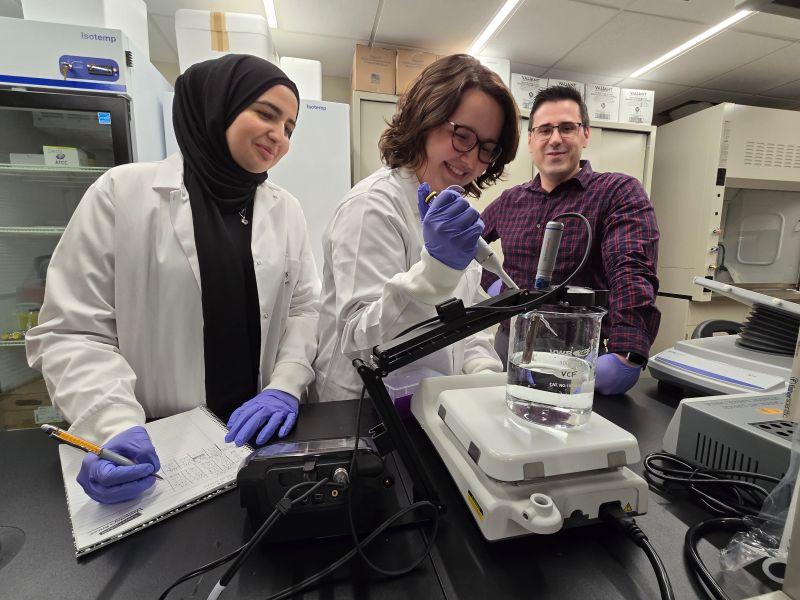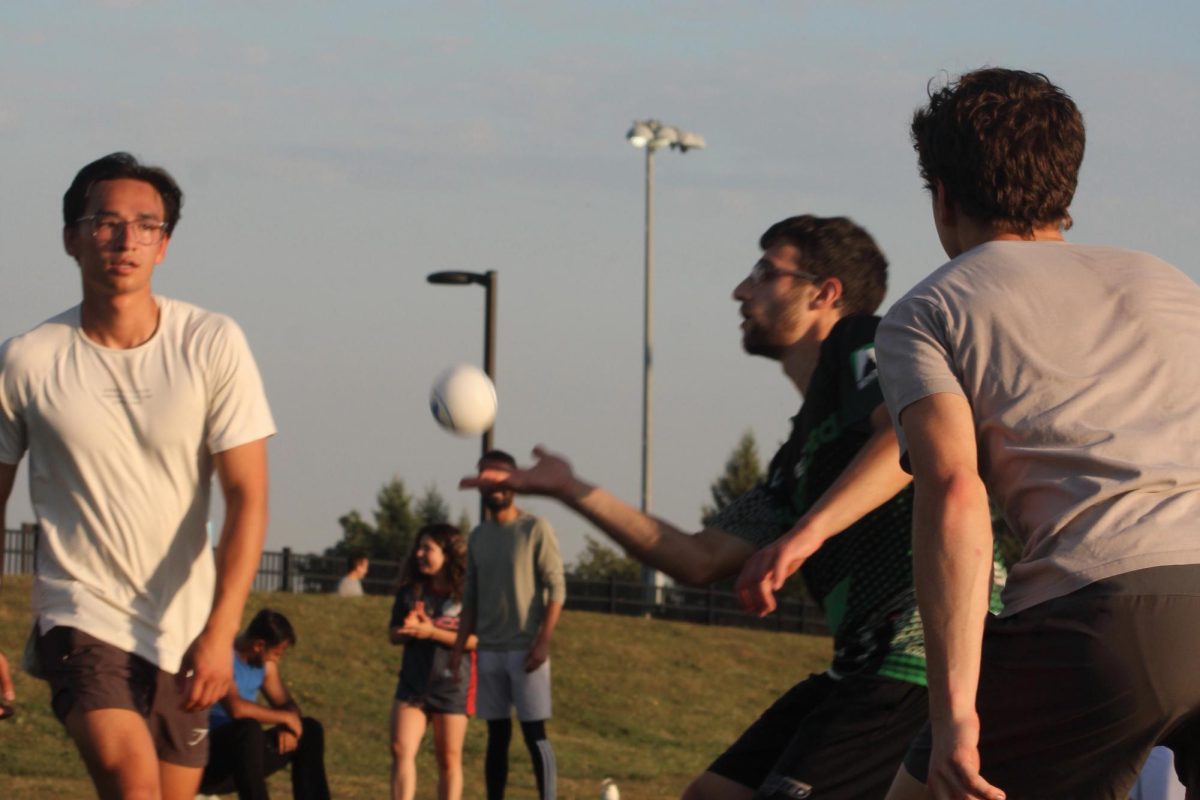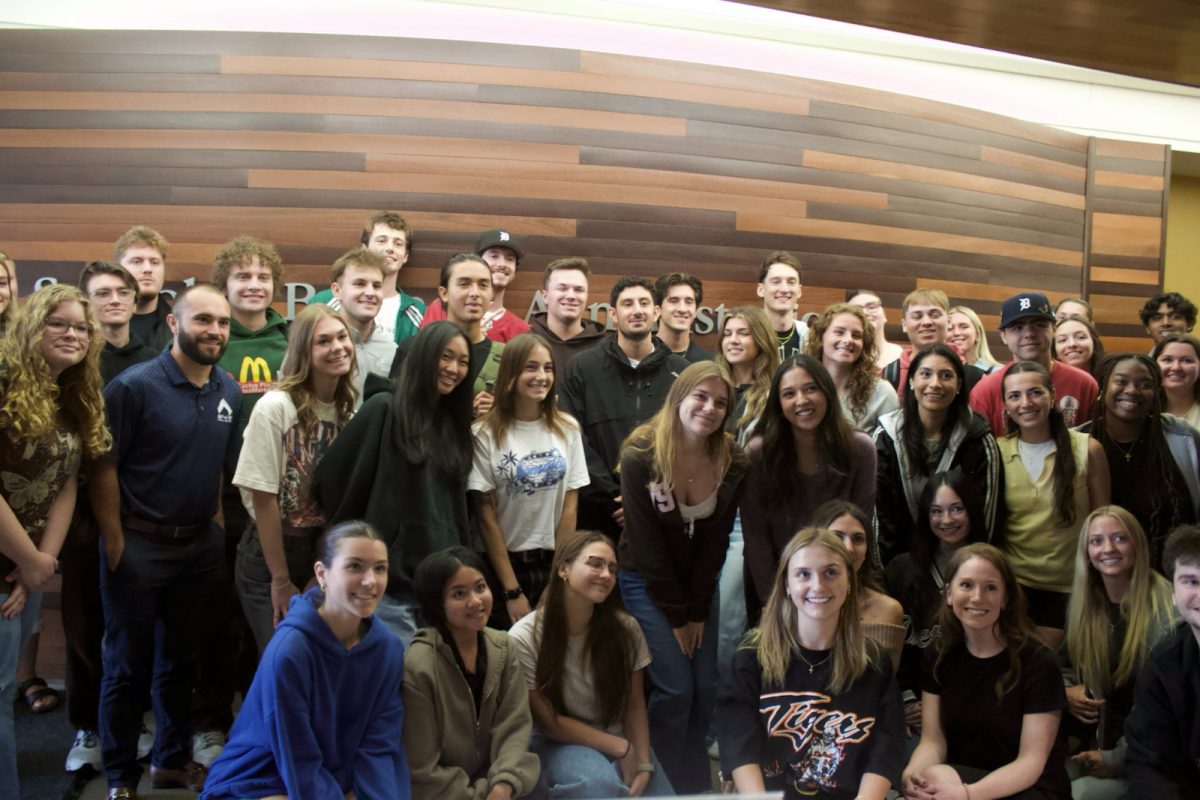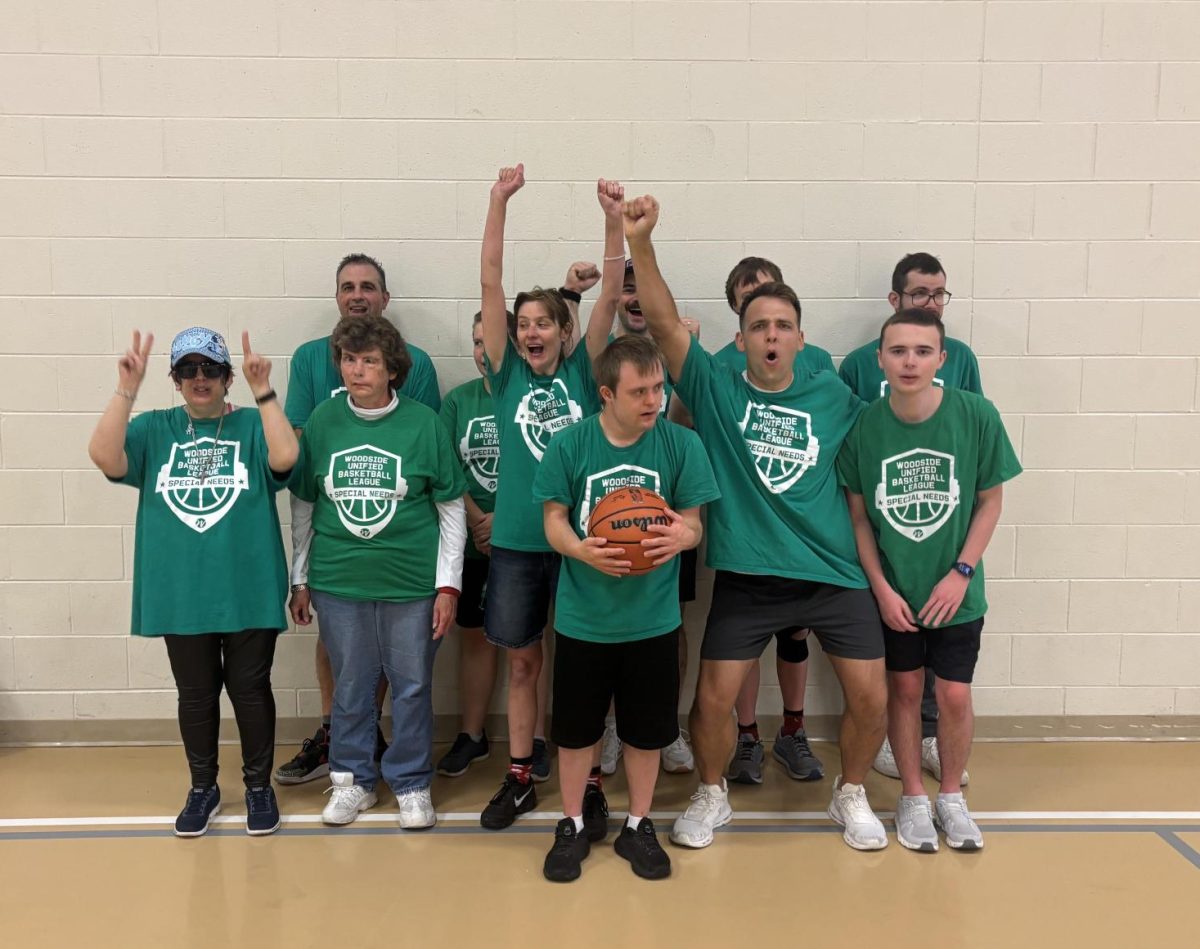The Muscle Biology Laboratory at Oakland University, organized by Dr. Vandré Casagrande Figueiredo two years ago, focuses on research in biology and muscle growth.
“When I was young, I started in a small gym and years later I was taking it seriously,” Figueiredo said. “I started to read a lot about how to build muscle, which one day ended up being a biochemistry of exercise book.”
As Figueiredo developed an interest in physiology, he entered his studies purely to learn how muscles grow.
“My lab still focuses on how muscles can become bigger, but also understanding how muscles are lost and how we can recover them,” Figueiredo said.
He explained that his current research interests involve rapid aging concerning muscle mass (sarcopenia) and the risk of cancer cachexia.
“We are interested in understanding the molecular mechanisms responsible for muscle atrophy during aging, cancer cachexia, muscle disease during limb immobilization and how we can preserve muscle mass during those conditions to recover faster,” Figueiredo said.
The laboratory is working on several projects that relate to muscle atrophy during cancer cachexia such as using a mouse model.
“We are also working to understand how stimulated microgravity may influence muscle mass,” Figueiredo said. “Also, the fundamental biological questions related to genetic and epigenetic mechanisms to regulate muscle mass.”
Figueiredo explained that the National Institute of Health (NIH) funded a research project, investigating a transcriptional factor key synthesizing ribosomes leading to muscle atrophy.
There are also many ways OU students can take part in Figueiredo’s laboratory.
“We are always open to new students that are committed to applying themselves to the challenges of undertaking a project or helping our graduate students,” Figueiredo said. “Perhaps even having a project for themselves.”
Figueiredo continues to work with undergraduate research volunteers, honors students and graduate students.
Within just two years of the Muscle Biology Laboratory’s creation, students have attended and submitted poster presentations for both local and state-level conferences.
“We only expect that students getting into the lab have the interest and curiosity to make discoveries. We expect students to apply themselves and dedicate enough time to produce something meaningful,” Figueiredo said.
Figueiredo also addressed his position as the principal investigator (PI) and how he guides his students.
“As a new PI and assistant professor, we have a lot of responsibilities that take time away from the lab,” Figueiredo said. “I believe a constant presence in the lab, guiding, training and being involved are all important aspects.”
“Students should feel safe to make errors, to try, to ask questions, so I try to be open and encouraging,” Figueiredo said.
The scientific laboratory aims to achieve many goals while ensuring research projects work.
“I hope one day to say that we learned so much about how muscle mass is regulated, or at least enough to mitigate muscle mass during aging and cancer,” Figueiredo said. “I hope to help pave the way to the cure of cancer, cachexia and sarcopenia.”
For more information about joining the Muscle Biology Laboratory visit the lab webpage, or contact Figueiredo via email at [email protected].






